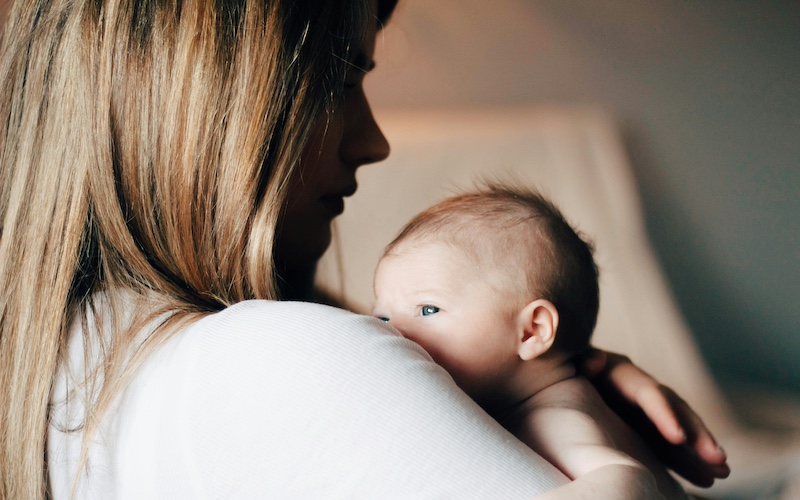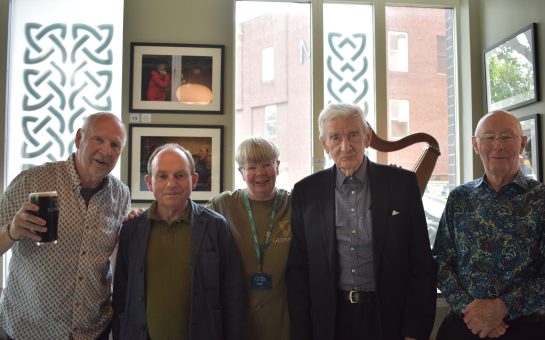You’ve scrupulously attended pregnancy yoga classes, followed an – almost – strict diet for nearly nine months, and checked the contents of your maternity bag about ten times.
However, nothing makes you quite ready for what is happening next: Life with a new-born.
And, perhaps the most unexpected while you are supposed to be blessed by this new little person in your life, a feeling of loneliness.
A 2022 report commissioned by the Greater London Authority and authored by by Neighbourly Lab, Campaign to End Loneliness and What Works Centre for Wellbeing showed that not only do one in 12 Londoners feel severely lonely, which equates to around 70,000, but also that one of the big associative factors to loneliness was going through life changes, such as becoming a parent.
Ellie, 35, from Haringey and mum to 18-month-old Lucas, said: “I guess I did not quite expect it to be such a life changer.
“You go from having a busy life, working all day, socialise in the evening and then all of a sudden, your job is looking after the baby.”
The retail designer is now back to work after a full year of maternity leave, but remembers she could feel lonely at times.
Ellie said: “You could just be home every day.
“You’ve got to learn to have the confidence to go out and about and do things with your baby”.
It is a task which can be made even harder by the baby’s nap and meal routine dictating the schedule, or the nervous prospect of potentially having to breastfeed while on the Tube.
Dr Ruth Naughton-Doe, mental health social researcher at the University of York, runs a research project aiming to find solutions to loneliness experienced by new and expecting parents.
She defines perinatal loneliness as a subjective perception of a gap between what people have and what they need, experienced by parents and prospective parents, from pregnancy to two years after birth.
Dr Naughton-Doe said: “There’s a lot of evidence that loneliness is damaging.
“It is a public health issue, because it’s something that is preventable, treatable and can be addressed.”
The academic stressed the fact that the World Health Organization has its own commission on social connection.
A subjective feeling, loneliness has three different aspects.
First is social loneliness, which is absence of social connections, sometimes difficult to maintain because of the baby’s rhythms and routines or the fact that society is not always the friendliest towards young children.
Secondly is emotional loneliness, which is the absence or loss of meaningful relationships.
Dr Naughton-Doe said: “Maybe you don’t have anyone in your support network that’s had a baby or knows what you’re going through.
“Often there’s huge shifts in the relationship with the partner.
“And also, with society telling us that being a parent is great, there’s a lot of shame that comes with feeling sad when you have a baby or being pregnant.”
Lastly, there is existential loneliness, which is a feeling of not belonging or having a purpose.
Dr Naughton-Doe said: “There is a complete disconnection to who you were before.
“Your body is different, you are not working if you were before.
“You experience being undervalued, maybe for the first time”.
While on maternity leave, new mum Ellie went to baby massage and sensory classes, met with friends she made though her local pregnancy classes, asked a neighbour with older kids for advice and spent quite some time with family members.
The young mum said: “I am quite sociable so I needed to have plans, see people, do things.”
But for some people and in some circumstances, it can prove difficult to find these inner strengths.
Dr Naughton-Doe said: “Loneliness is a really common feeling and reaching out for help is really important.
“To your partner, your family, your friends, your health visitor.”
Some charities or clubs are dedicated to providing such help, such as HomeStart Merton, a voluntary organisation supporting parents at risk of perinatal mental health since 1993.
HomeStart pairs each family with a volunteer and families are visited two to three hours weekly.
Rather than the volunteer telling the parents what to do, the emphasis is put on listening and reassuring them.
HomeStart Merton’s managing director Sharon Ashby said: “A lot of people have a very judgmental approach if they’ve not gone through any mental health issues, because the idea is you’ve just got to pull your socks up and get on with it.
“It’s not as easy as that.”
After three months, parents are invited to join a peer support group, where they take part to talking therapies or go to the theatre for instance.
Ashby is a strong believer that the biggest and bravest thing to do, as parent needing help, is to ask for it.
She said: “Coming into a group where everybody is being spoken to takes a stigma out.
“We all need help at some stage and the bravest thing is to ask for it and accept it.”
Picture credit: Hollie Santos, Unsplash





